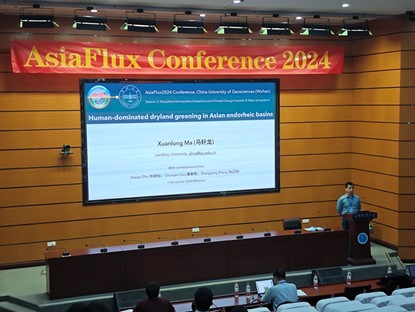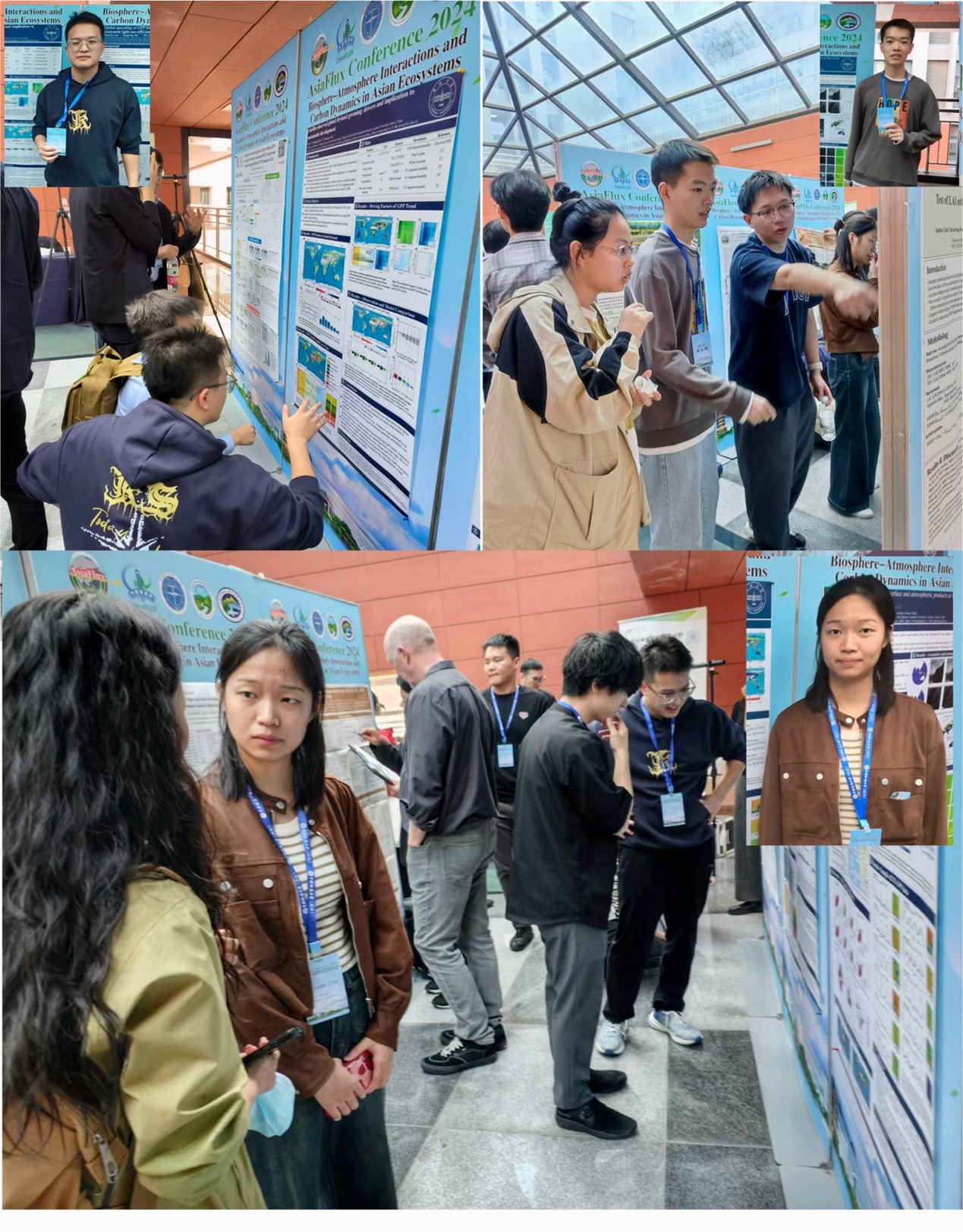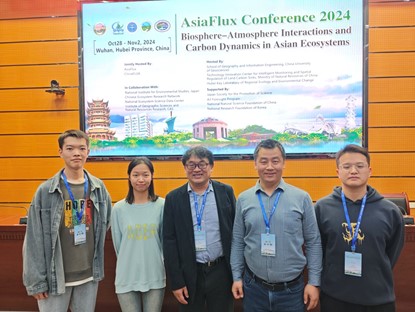Recently, the research group led by Professor Xuanlong Ma, along with several faculty members and students from the School of Earth and Environmental Sciences, Lanzhou University, attended the 2024 AsiaFlux Annual Meeting and the 25th Anniversary Celebration of AsiaFlux,, hosted by China University of Geosciences (Wuhan). During the conference, Professor Ma Xuanlong chaired Session 3, titled "Land-Atmosphere Interactions and the Impact of Climate Change on Asian Ecosystems," and delivered an oral presentation titled "Human-dominated dryland greening in Asian endorheic basins." Three students from the research team—Cao Chunyan, Deng Zhenduo, and Li Yi—presented poster reports on the following topics: "Global upscaling of GPP from FLUXNET sites using MODIS EVI and ecosystem light-use-efficiency model", "FY4/AGRI land surface and atmospheric products at eddy covariance flux tower sites in Asia and Oceania" and "Satellite observed global dryland greening: drivers and implication to sustainable development."
This conference, themed "Biosphere-Atmosphere Interactions and Carbon Cycle in Asian Ecosystems," encompasses keynote speeches, specialized sessions, technical training, and field scientific investigations. It has attracted over 200 experts and scholars from flux observation research networks in countries including China, Japan, South Korea, Southeast Asian nations, and the United States. The event aims to summarize the 25 years of development and experiences of AsiaFlux and to strengthen academic exchange and cooperation among Asian scholars in ecosystem carbon flux monitoring and carbon stock assessment.

Figure 1: Professor Xuanlong Ma delivers an oral presentation.

Figure 2: Group members present posters and exchange ideas with peers.

Figure 3: Professor Xuanlong Ma’s research group with Professor Kazuhito Ichii, Chair of AsiaFlux from Chiba University, Japan (third from left).
Through this conference, the faculty and students from our school effectively showcased their current research achievements and engaged in in-depth academic exchanges with outstanding scholars from home and abroad, paving the way for closer collaboration in future research. The conference also provided a valuable platform for students, inspiring them to pursue continuous exploration and innovation in their academic journeys. The 2025 AsiaFlux meeting is scheduled to be held in Riau Province, Sumatra, Indonesia, between October and November next year.
Background Information:
AsiaFlux is a network dedicated to long-term observational research on carbon, water, and energy fluxes between the atmosphere and typical terrestrial ecosystems in Asia, using micrometeorological eddy covariance techniques and chamber-based methods as its primary approaches. Established in 1998, AsiaFlux brings together multiple flux observation networks across Asia, including the China Ecosystem Flux Observation and Research Network (ChinaFlux), JapanFlux, and KoFlux from South Korea. Through cross-regional collaboration, AsiaFlux has expanded the diversity and representativeness of ecosystem observations, significantly advancing flux observation research in Asia. AsiaFlux is a member of the global flux research network FLUXNET, alongside networks such as AmeriFlux in the Americas, OzFlux in Australia, and ICOS in Europe. AsiaFlux homepage: http://asiaflux.net